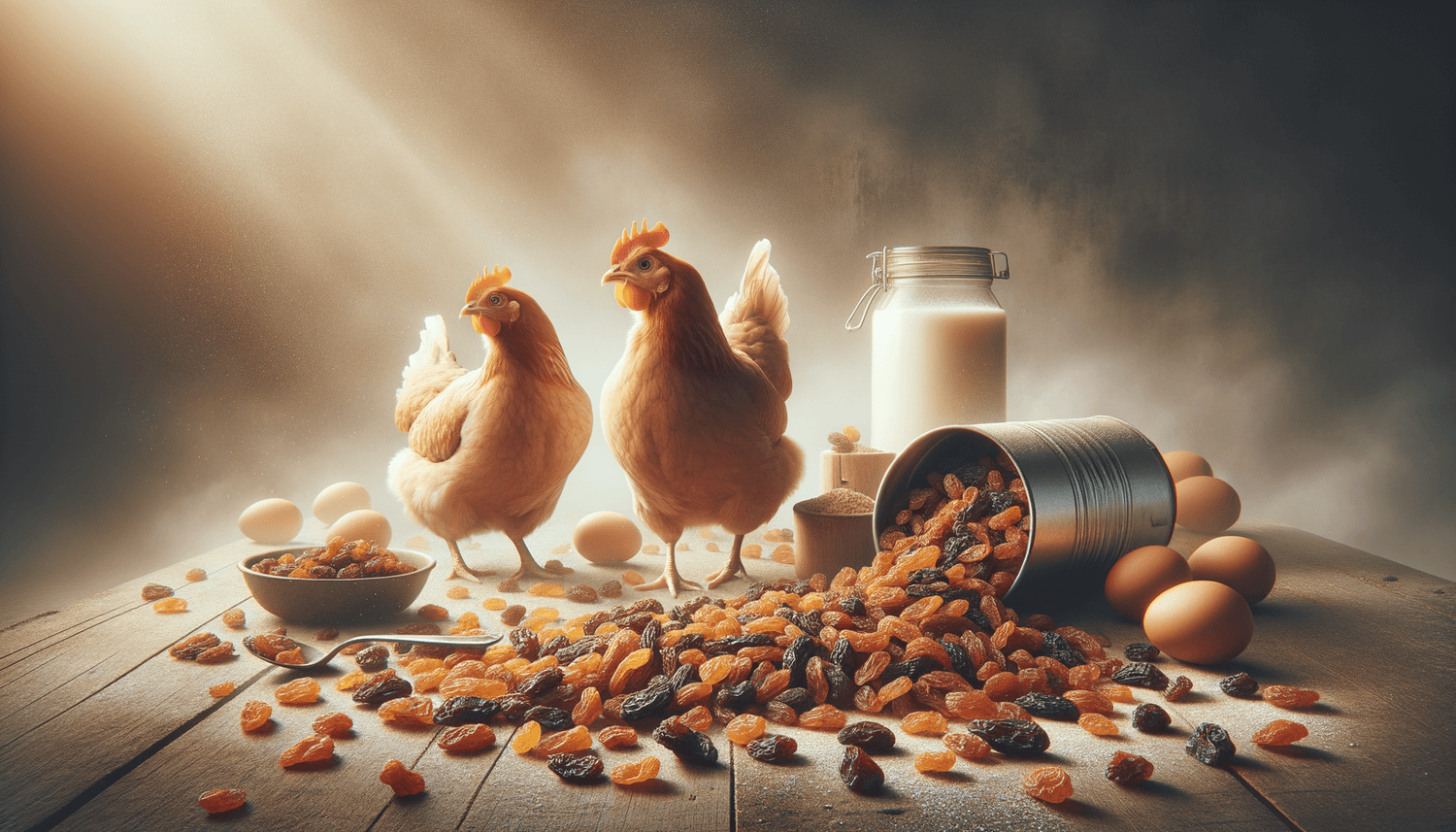Yes, chickens can eat dried raisins. Raisins are safe in moderation because they are non-toxic and can serve as an energy-dense snack for poultry. However, due to their high sugar content, they should be given sparingly to prevent obesity and digestive issues.
Quick Summary
- Chickens can eat dried raisins.
- Raisins are non-toxic and can provide quick energy, but their high sugar content means they should be a treat, not a staple.
- Key benefits include vitamins and minerals, while risks involve potential obesity and digestive upset from overconsumption.
- Recommended feeding guidelines suggest offering raisins in small amounts as an occasional treat.
Overview of Dried Raisins
Dried raisins are grapes that have been dehydrated. This process concentrates the sugars, making them energy-rich. They also contain some fiber, antioxidants, and nutrients like iron, potassium, and vitamins, albeit in small amounts relative to a chicken’s full dietary needs.
Benefits and Risks of Dried Raisins for Chickens
Raisins can offer chickens a quick source of energy and small amounts of vitamins and minerals that can complement their overall diet. However, the main risk associated with feeding chickens raisins is their high sugar content, which can lead to weight gain and is not suitable for a chicken’s regular diet.
Feeding Guidelines
To feed chickens dried raisins safely, offer them as a treat and not as a substitute for their main diet. A small handful of raisins per chicken, given once or twice a week, is sufficient. Always ensure that chickens have access to fresh water to help digest any treats they consume.
Alternatives
If concerned about sugar content, opt for other treats like fresh vegetables or grains that are lower in sugar and more in line with a chicken’s natural diet. Chopped lettuce, cucumbers, and cooked grains are healthy alternatives to raisins.
Expert Opinions
Poultry nutritionists and veterinarians generally agree that treats like dried raisins should not exceed 10% of a chicken’s diet. Balance and variety are key, as is monitorizing the bird’s overall health and weight.
Frequently Asked Questions
After learning about the prospect of feeding dried raisins to chickens, you may have additional queries regarding this practice. The following FAQs aim to address common concerns and provide clarity on the subject.
How often can I give my chickens dried raisins?
Chickens can have dried raisins as an occasional treat, no more than once or twice a week to prevent any diet imbalances or health issues.
Are dried raisins as healthy for chickens as fresh grapes?
While both provide similar nutrients, dried raisins are more concentrated in sugars compared to fresh grapes and thus should be given in smaller quantities to maintain a balanced diet for your chickens.
Will eating dried raisins cause my chickens to gain weight?
If fed in moderation, dried raisins should not cause weight gain in chickens. However, excessive consumption can contribute to obesity, so be mindful of the amount and frequency of this treat.

















